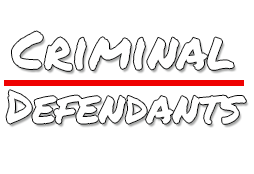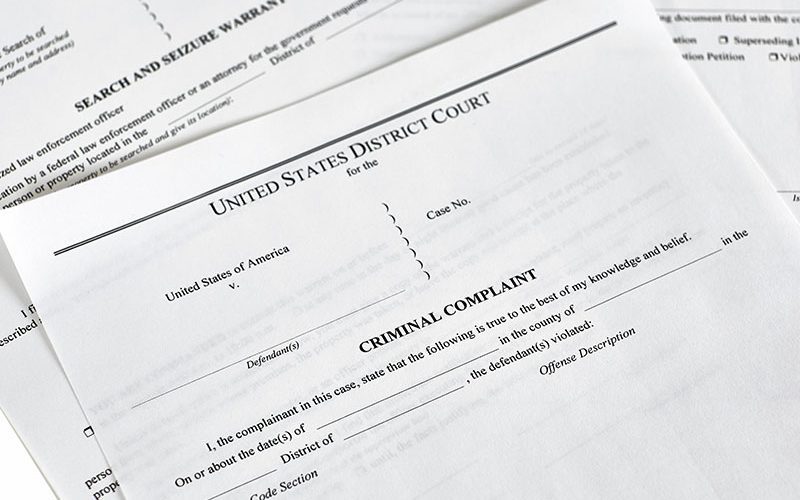If you believe you’ll be charged with a crime, it’s common to have countless questions and concerns. The criminal justice process can be daunting, especially if you’ve never been in trouble with the law before. The first thing you need to know is that the sooner you take action and learn about your potential charges and penalties, the better your outcome will be.
Who do I contact if I think I’m being charged with a crime?
If you suspect that you’ll face criminal charges in the near future, your first point of contact should be a criminal defense attorney. More specifically, a criminal defense attorney that has experience defending your criminal charges.
For instance, if you presume that you may face mail fraud charges, you want to work with a federal defense attorney that has managed these cases in the past. If you suspect that you’ll be charged with domestic violence or assault charges, contact a criminal defense lawyer who has experience in these offenses.
Even if you’re not entirely sure if charges will officially be brought against you, it would still be wise to contact an attorney. A criminal defense attorney can be incredibly helpful in the pre-charging phase. They will be your main point of contact and the only person who will have your best interest in mind. It’s necessary to contact an attorney as soon as possible so they can guide you through your potential arrest and begin building a case to defend you.
A criminal defense attorney will also be able to help you find out if there’s a warrant out for your arrest. Keep in mind that law enforcement does not have to inform you if you’re being investigated for a crime. An investigation happens when law enforcement suspects a crime has taken place. They’ll interview witnesses and collect evidence to determine if it’s enough to charge you and prosecute you formally.
What if I’ve received a summons?
Remember that not every crime begins with an arrest and a suspect in handcuffs. You may receive a summons in the mail or certified mail. As soon as you’re aware of your summons, be sure to contact your criminal defense attorney for guidance.
Your summons should include a criminal complaint describing what your charges are. Typically, a summons will explain when and where you have to appear for a hearing. Remember, if you don’t appear for your court date, you will likely face an arrest.
What if I’m arrested?
Arrests can happen in several different ways. You might be arrested due to a police officer witnessing you commit a crime or if a domestic violence assault has been reported. In these cases, criminal charges may not necessarily be filed against you. The prosecutor will have to provide enough proof of probable cause to follow through with a criminal charge.
There may also be a warrant out for your arrest. A police officer can suddenly show up at your home or office and place you under arrest. In most states, an officer is required to present the warrant to you and state the criminal charges. In other circumstances, you may not learn about your criminal charges until you’re booked at your local police station. In any of these cases, your first phone call should be to a criminal defense attorney.
How do I know if there’s a warrant out for my arrest?
If you haven’t been arrested or received a summons, but you think there may be a warrant out for your arrest, you can contact law enforcement to learn more. You can call for a warrant check to see if a warrant has been issued. Keep in mind that there may be an active investigation against you, but a warrant may not be yet issued. Again, law enforcement does not have to inform you of the investigation, only the warrant.
If there is a warrant out for your arrest, contact your criminal defense attorney immediately, and they will advise you on what to do next. More than likely, they will ask you to turn yourself in while they prepare a strategy for your defense.
How long can the police detain me without filing charges?
If you’re arrested without criminal charges or asked to accompany a police officer to the station for questioning, remember that you do have rights. In most states, police can only detain you for 48-72 hours without charging you with a crime.
Do I have to talk to the arresting officer?
You can ask an officer why they’re arresting you, and beyond that, you don’t have to speak. Remember that you have a right to remain silent for a reason. It’s always best not to resist arrest. Any struggling, resisting, or yelling at an officer will likely be used against you in court. After an arrest and booking procedure, you have the right to speak to your attorney. It’s highly recommended to only talk to the police with your attorney present.
What happens after the arrest?
After you’re arrested, you’ll appear at your first court hearing, which is called an arraignment hearing. An arraignment hearing is when a defendant is officially charged with a crime or crimes. There is no jury, only a judge. You’ll appear before a judge, enter a plea, and your bail conditions will be established.
You have the right to ask for a public defender if you can’t afford an attorney. While it’s always recommended to hire a seasoned criminal defense attorney, public defenders are also effective. Do not enter a plea without speaking to an attorney first. Even if there’s substantial evidence against you, always plead not guilty. Your defense attorney can review the existing evidence, investigate the case further, or negotiate with the prosecutor on a plea deal.
Key Takeaways
Not all arrests happen with an individual in handcuffs being read their rights. You may receive a summons to appear in court or have a warrant out for your arrest. In any case, it’s important to contact a criminal defense attorney if you’ve been arrested, there’s a warrant out for your arrest, or you suspect that you’re under investigation. Your criminal defense attorney can guide you through the criminal justice system, negotiate with the prosecutor, and design a defense.
The sooner you call a criminal defense lawyer, the better your chances of achieving a successful outcome.

